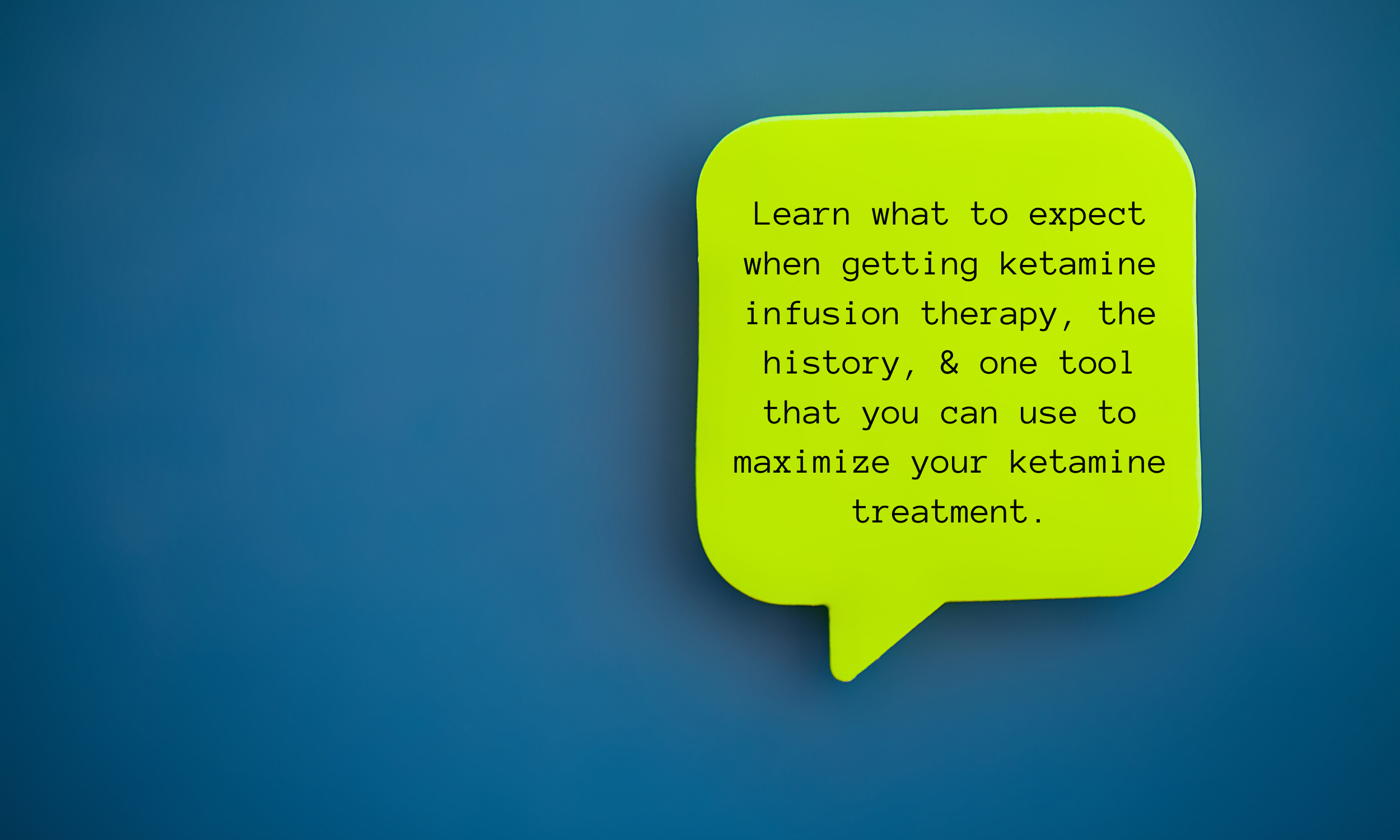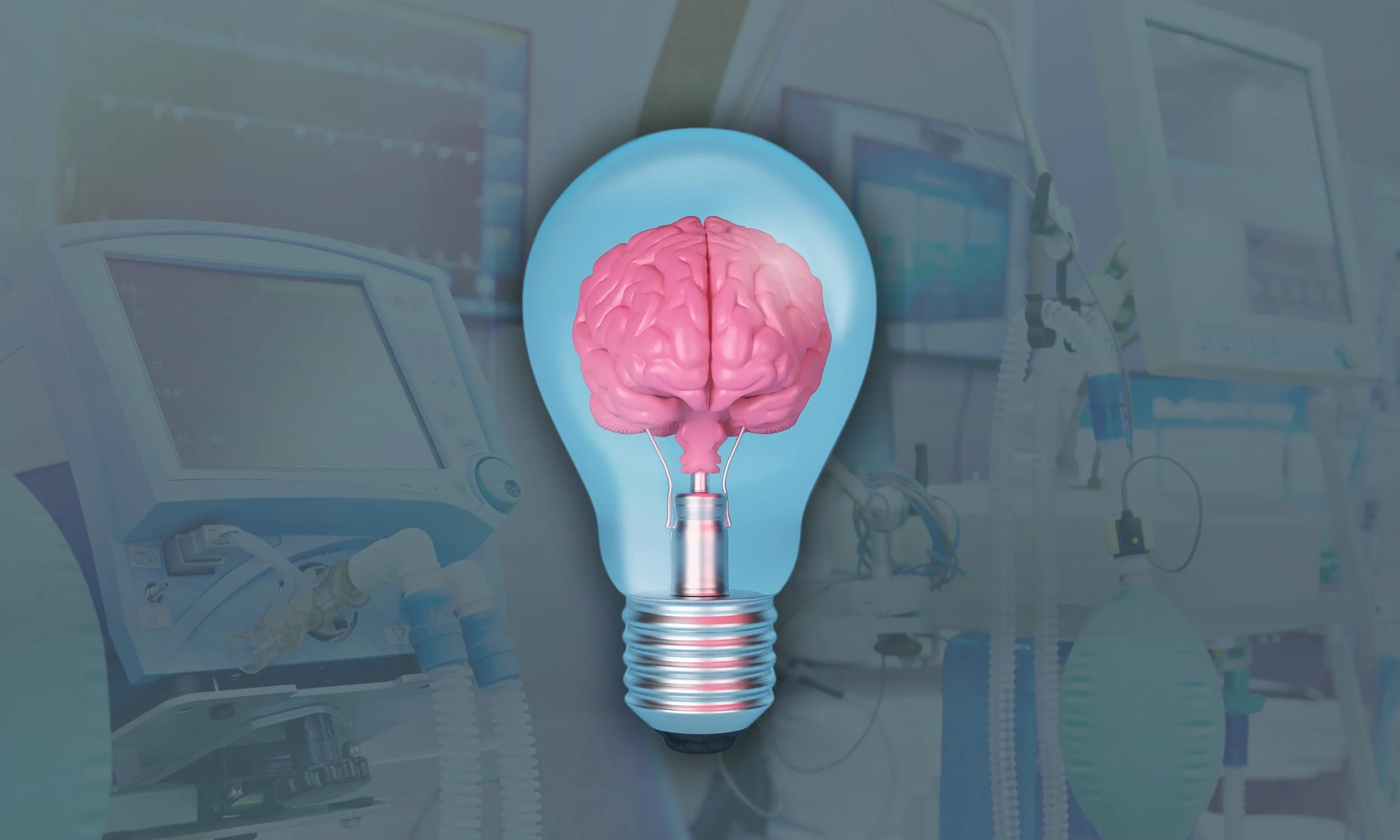In this blog, learn what to expect when getting ketamine infusion therapy, the background of the medication ketamine, and one tool that you can use to maximize your ketamine treatment.
This blog is an adapted transcript of the above video What Is Ketamine Infusion Therapy?
Although ketamine is now known as a cutting-edge mood disorder treatment, it didn’t always have this reputation.
What’s Ketamine And How Did This Therapy Come To Be?
When the term "ketamine" comes up, many may have preconceived notions or only a superficial understanding of its potential therapeutic use. But, if you've clicked on this article, you're likely curious and keen on diving deeper. Today, we'll unravel the intricate tapestry of ketamine infusion therapy. Though now it’s known as a cutting-edge mood disorder treatment, ketamine had a vastly different starting point. Invented in the 1960s, it received its FDA approval as a general anesthetic by 1970, with its primary application residing in the realms of operating rooms and emergency departments.
Learn more history at our A Brief History of Ketamine blog.
In the early 2000s, ketamine’s ability to treat depression, PTSD and anxiety was explored.
Ketamine's Surprising Shift to Mood Disorder Treatment
The new millennium heralded an unexpected twist for ketamine. While its anesthetic properties were well-charted, studies in the early 2000s illuminated its potential efficacy against depression. This revelation spurred further research into its applications for PTSD and anxiety. The resulting wave of evidence led to the establishment of specialized ketamine clinics, offering this innovative therapy for various mood disorders.
Everyone’s ketamine experience is unique, but it’s important that there is always a rigorous monitoring of vital signals during the treatment.
What Should You Expect During Ketamine Therapy?
The typical path to ketamine therapy begins with six initiation series, spread across 2 to 4 weeks. These serve as a foundational phase, which, based on individual responses, can lead to maintenance boosters at varied intervals. But remember, the roots of ketamine are in anesthesia. This means that during the therapy, rigorous monitoring of vital signs – from blood pressure to oxygen levels – is paramount. Such stringent oversight ensures the patient's safety throughout.
One of the most crucial elements of ketamine therapy is the act of setting an intention.
How Can Setting Intentions Amplify the Effectiveness of Ketamine Therapy?
I wish to share a crucial tool to harness the full potential of ketamine therapy: the act of setting an intention. By intention, I mean a deep, introspective query: "What is my ultimate aim with this therapy?" It could be a desire to release past traumas, seek inner peace, cultivate gratitude, or any personal aspiration. This self-defined goal, unique to each individual, will act as a guiding mantra during the therapy sessions.
Ketamine’s ability to foster neuroplasticity is one of the reasons why it’s such an effective treatment.
Ketamine's Role in Boosting Neuroplasticity and Synaptic Connections
Ketamine's magic doesn't just lie in its direct effects but also in its role as a facilitator. It fosters neuroplasticity, promoting the growth of neurons and strengthening synaptic connections. Given this, it's plausible that a patient's thoughts during therapy could shape how their brain evolves. By consistently focusing on one's intention during sessions, the potential for beneficial neural changes is maximized.
Ketamine has gone through a rather interesting journey and there is much hope for this therapy in the future.
In Conclusion: The Transformative Journey of Ketamine in Mood Disorder Treatment
Ketamine infusion therapy, once solely an anesthetic tool, now stands at the forefront of mood disorder treatments. Its journey from the operating room to specialized clinics, coupled with the power of intention setting, offers hope and healing to countless individuals. As research progresses, and as we continue refining our approaches, the promise of ketamine therapy only brightens.
If you enjoyed this blog, check these out too:
Ketamine the Legal Psychedelic: It’s History And How It Works
Curious about ketamine and how it works? Well you've come to the right place. In this blog, we'll explore this topic and highlight how this legal psychedelic works differently from other psychedelics.
How to Use Ketamine as a Transformational Medicine
Ketamine is more than just a standard medication. It can also be a transformational, life-changing medicine! In order to accomplish this, there are 4 steps to using ketamine which unlocks its ability to transform the lives of those with depression, chronic pain, and anxiety disorders.
How Ketamine Improves Depressive Symptoms: a neurotransmitter perspective
Neurons, neurotransmitter, brain growth? If you wanna know the science behind ketamine and the brain read more in this blog.











